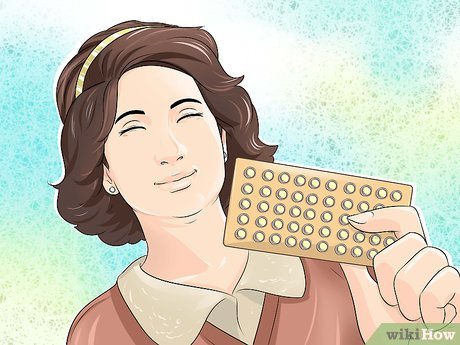Everything You Need To Know About Birth Control
Birth control pills act as oral contraceptives that help prevent pregnancy. They contain hormones to change the way the body works. They have been the most common method of contraception but the side effects of these pills have been veiled with a number of questions. The specific side effects vary greatly among individuals and usually ease within 2-3 months. There are mainly two types of birth control pills. Combination pills contain estrogen and progestin, which is a synthetic form of the natural hormone progesterone, while the mini pill contains progestin only. You have to find the pill that best suits you. But contraception is not the only reason why birth control pills are prescribed.

How do they work?
One becomes pregnant when an egg released from their ovary (the organ that holds eggs) is fertilized by a sperm. The fertilized egg attaches to the inside of their womb (uterus), where it develops into a baby. The hormones in their body control the release of the egg from the ovary — called ovulation — and prepare your body to accept the fertilized egg.
“The pill” is a type of hormonal contraceptive which inhibits one’s body’s natural hormones to prevent pregnancy in a few ways. The hormonal contraceptive usually stops the body from ovulating. They also change the cervical mucus to make it difficult for the sperm to go through the cervix and find an egg. They also make it hard for the fertilized egg to be implanted by changing the lining of the womb.
Basically, one can’t get pregnant if they don’t ovulate because there is no egg to be fertilized.
For the first 7 days of taking the Pill, one should also use an additional form of contraception, such as condoms, to prevent pregnancy. After 7 days, the Pill should work alone to prevent pregnancy. This timing can vary based on the type of Pill and when one starts taking it. Thus, consulting a doctor is always advisable. Also, it’s important to continue using condoms to protect against sexually transmitted diseases (STDs) as oral contraceptives do not provide protection against STDs.

It's not just about contraception
Birth control pills can help with a lot of other things besides pregnancy prevention.
It is less known that birth control pills can be used to treat a variety of problems of people with vaginas and can have some surprising health benefits.
Both combination and progestin-only pills reduce menstrual cramps, lighten periods, and lower risk of ectopic pregnancy.
The combination pill can also help prevent or lessen:
- acne
- bone thinning
- cysts in your breasts and ovaries
- endometrial and ovarian cancers
- serious infections in your ovaries, fallopian tubes, and uterus
- iron deficiency (anemia)
- PMS (premenstrual syndrome)
Lots of people use the pill to make their periods regular and easier to predict. The hormones in the pill can also reduce menstrual cramps and make your period lighter.
One can also use the pill to safely skip your period, which is completely convenient for people who want a special occasion to be period-free.
It is extremely important to find the right routine for taking your birth control pills according to your body and needs. You can find more information here.
Birth control pills can also reduce the chances of anemia (low red blood cells), ovarian cancer, and uterine cancer. These beneficial effects occur because the birth control pill works by decreasing the number of ovulations, amount of menstrual blood flow, and frequency of periods.

Side effects of the pill
The pill might be a blessing for some but it comes with its own set of side effects. These side effects vary from person to person.
Most people use the pill without any side effects.
The most common side effects are spotting or bleeding between periods (this is more common with progestin-only pills), sore breasts, nausea, or headaches. But these usually go away after 2 or 3 months, and they don’t happen to everyone who takes the pill.
If you keep having side effects that bother you after using the pill for 3 months, consult your nurse or doctor about trying another brand of pill or another birth control method. However, keep in mind that you shouldn’t stop taking the pill without starting a new method.
There can be some rare but serious long term risks. People using birth control that has estrogen, like combination pills, have a slightly higher chance of having a few rare but dangerous problems than people who don’t use birth control with hormones.
There has also been some research linking hormonal contraceptives and depression.
Hormones play an important role in a person’s mood and emotions. So it makes sense that changes in hormone levels, which taking the pill may cause, can affect a person’s mood.
Another effect of hormonal changes can be decreased libido.
The pill may not be safe for people who:
- have untreated hypertension
- smoke and are over the age of 35 years
- have a history of heart disease
- have migraine with aura
- have a history of breast cancer or endometrial cancer
Birth control pills contain hormones that affect the body in many ways. Therefore, side effects are common. Each person reacts differently to the pill.
Cover Illustration: Medium
Author

